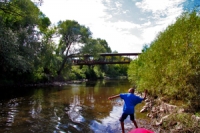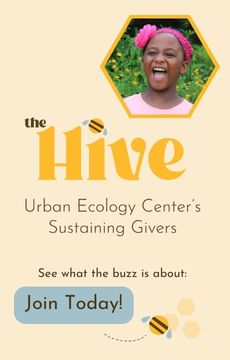"This project has also made me a better parent, recognizing the things my children need to grow up strong, resilient, and healthy. My main lesson learned? I want to keep doing this work!” — Kirsten Beyer, coleader, “More than a Pretty Place” research project
Kirsten made this observation just after we presented the findings of our More than a Pretty Place research project to nearly 200 people from 30 different countries at The Power to Move Kids: 2014 Global Summit on the Physical Activity of Children. We had also witnessed the unveiling of the “Global Physical Activity Matrix”, a report on physical activity of children, which identified Scotland and the US at the bottom and New Zealand and Mozambique at the top of the list. Only 5 of the 15 countries who completed their Global Matrix Score card had completed the section on “Active Play” — a core component of our research project. Delegates (medical, sports, physical education and urban design professionals, to name a few) attending the summit were interested in the Center’s approach to activating underutilized play spaces (urban parks) as an innovative way to build healthy, active lifestyles for kids. With each conversation, people reinforced that our work is relevant, not only for Milwaukee, but across the globe in both developed and underdeveloped countries.
Three years earlier, we seized an extremely rare opportunity at our Menomonee Valley branch — capturing a moment in time when we could gather information before a program and a natural space were available to kids, and again after both of these neighborhood assets were opened. Each day the Center planned to engage kids in learning, exploring and being active. It was intuitive to make the claim that our programs elevated activity levels, thereby promoting healthy behaviors. But in order to actually make that claim, we needed evidence. Gathering a group of core partners: Medical College of Wisconsin (Kirsten Beyer), Center for Urban Initiative and Research (Jessica Bizub), Menomonee Valley Partners (Corey Zetts) and Urban Ecology Center (Beth Heller), we captured our vision for the project and submitted a grant to the Healthier Wisconsin Partnership Program. It was funded and off we went!
After the summit, we looked out over Toronto, a metro area of seven million people and Lake Ontario, one of our sister great lakes to the northeast, and reflected on our three years (so far) of working together. We both noted that it resulted in more than the evidence we initially sought.
Our most important finding is that kids love and value nature. Generally speaking, they believe it makes them healthier, teaches them new things, calms them down when they are upset, and offers them freedom, excitement, and yes, time to be dirty. Another finding of significant importance is that, as we all thought, the Urban Ecology Center’s programming is working. Kids who participate in the Neighborhood Environmental Education Project have reduced fears of outdoor play in nature, are likely to come back to the Center and come back more often. Also, Three Bridges Park is itself making a difference. We saw an increase in the amount of kids who reported that they knew a place to play outside in nature since the development and opening of the park.
“For me,” said Beth, “the rewards of this partnership have been both personal and professional. From a personal perspective, this project satiated an ongoing desire to learn and to continue to challenge my inner scientist by digging deep into a research project with an extremely high level of academic rigor. Since my background in community health was limited, I also had to have the courage to say ‘I have no idea what you are talking about’ to the academic partners. It was humbling, but it opened the door for learning and is part of the richness in bringing academic community partners together.”
 These findings are extremely exciting, especially given the global context of physical inactivity for children who need ways to develop healthier habits. We now have evidence indicating that our model of connecting kids to nearby nature is a viable solution. For more information about this study, contact Beth at This email address is being protected from spambots. You need JavaScript enabled to view it..
These findings are extremely exciting, especially given the global context of physical inactivity for children who need ways to develop healthier habits. We now have evidence indicating that our model of connecting kids to nearby nature is a viable solution. For more information about this study, contact Beth at This email address is being protected from spambots. You need JavaScript enabled to view it..





